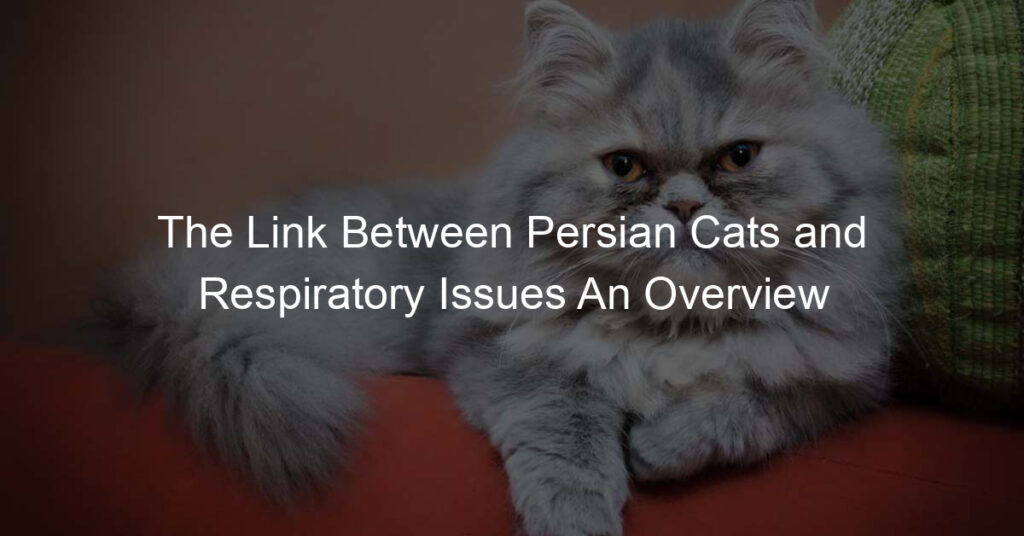It’s not like you can ask them directly, but Persian cats may bite if they feel threatened or stressed. They are a sensitive breed and can become easily agitated by loud noises or too much handling.
It is important to be aware that cats communicate differently than dogs, and biting is one of their methods of communication. Therefore, if your Persian cat is feeling particularly stressed out, it is best to leave them alone and let them relax in a quiet space until the feelings pass.
As with any pet, it’s crucial to establish trust with your furry friend so they don’t feel scared or uncomfortable when around you.
There isn’t a one-size-fits-all answer as to why Persian cats bite; it could be due to a myriad of reasons. However, understanding the different ways cats communicate can go a long way in helping you, and your Persian cat get along better!
It’s important to remember that cats are complex creatures and require special care and attention because if treated with respect and understanding, Persian cats can make excellent pets.
So don’t be scared off by the occasional bite; keep trying to build trust with your furry friend; they may just surprise you!
What Are the Common Triggers for Persian Cats Biting?
Persian cats may bite for several reasons. One common trigger is if they feel threatened, scared, or uncomfortable in their environment. They may bite out of fear or to protect themselves. For example, if a Persian cat feels crowded or cornered, it may lash out with a bite as a warning.
Another potential cause is simply a lack of socialization and improper handling when they were kittens. This can lead to unpredictable behavior in adulthood, where the cat bites without warning to express its feelings.
Finally, some Persian cats can be overly territorial and may nip others who come into their space too quickly, even if that person is their beloved owner!
Regardless of the reason behind it, one thing’s for sure: Persian cats biting is no laughing matter and should be managed carefully. If your Persian cat has a biting problem, it’s important to take steps to address the issue before it escalates further.
Taking the time to understand why your cat is biting can help you make an informed decision that’s best for both of you.
How Can I Stop My Persian Cat From Biting?
If you’ve ever been on the receiving end of a Persian cat bite, then you know it can be quite an unpleasant experience. Thankfully, several measures can be taken to prevent your feline companion from becoming too friendly with their teeth.
The first step is to establish boundaries with your cat. When they begin to bite or scratch, make sure you quickly move away or give them a firm ‘No!’ This will teach them that biting and scratching is inappropriate behavior.
Also, if your cat does something wrong, provide positive reinforcement when they do something good instead of punishing them for the bad behavior; cats respond better to positive attention than negative punishment.
Another critical step in preventing biting is to provide your cat with plenty of toys and scratching posts. Cats have the instinct to bite, so it’s important to give them something else to focus on instead of you. Toys can also help distract them from biting when they get bored or overstimulated.
Finally, ensure your Persian cat gets enough exercise and attention each day. Exercise helps cats release some of their excess energy, while regular playtime helps keep them stimulated mentally and physically.
If your cat isn’t getting enough exercise or attention, it may turn to bite out of boredom or frustration.
Although it may not be easy, it is possible to stop your Persian cat from biting by following these steps and providing them with plenty of love and attention.
Is It Normal for Kittens To Bite When Playing?
Persian cats are known to have a bit of an attitude, which can sometimes lead to biting. But this isn’t necessarily a bad thing. After all, it’s just their playful nature coming through! Persian kittens, in particular, love to play rough and may nip and bite as part of that playtime behavior.
While some kitten owners may find this kind of roughhousing cute, owners need to educate themselves on how best to interact with their cats during playtime so as not to hurt either the cat or the human.
One way to discourage biting when playing is by providing lots of toys and other sources of entertainment for your Persian kitty. The more appropriate outlets your cat has for their energy, the less likely it will bite you.
Further, be sure to keep your hands away from the cat’s head and mouth while petting, as this can lead to a sense of overstimulation and biting.
Remember that Persian cats need lots of love and affection to feel comfortable around humans. If your Persian kitty feels neglected or overwhelmed, it may try to express its feelings by biting.
So make sure you are spending plenty of time with them, giving them treats and cuddles, and teaching them proper behavior – just like with any other pet! With patience and understanding, soon you’ll have a happy furry friend who loves cuddles more than bites!
If all else fails, though, remember that Persian cats are still animals and that biting is a natural behavior for them. As long as you take the necessary steps to ensure your cat is comfortable and safe, it’s nothing to worry about!
Does Spaying/Neutering Reduce Aggressiveness in Cats, Including Persian Cats?
It’s a common misconception that spaying or neutering your Persian cat will reduce aggressiveness. While it is true that cats may display less aggression after they are altered, there are many other factors to consider before assuming this is the case with your particular feline.
The truth is that Persian cats have unique personalities and behaviors. Some can be pretty timid, while others can be incredibly vocal, some even loud enough to make their owners question why on earth they chose a Persian in the first place!
It’s also important to note that when it comes to aggressive behavior, some individual cats can be more prone to it than others regardless of gender or whether they’re altered or not.
Although spaying/neutering may reduce the likelihood of aggression in Persian cats, it is not guaranteed. To understand why your particular cat may be biting, it’s essential to look at the root cause of their behavior.
For example, cats may bite when they are feeling threatened or scared; this could be due to an unfamiliar environment or a sudden loud noise. In these cases, providing your cat with a safe and comfortable environment can help ease its fears and make them less likely to lash out.
It’s also important to note that cats aren’t always aggressive for no reason. Sometimes, they simply need more attention from their owners. Cats who don’t receive enough mental stimulation can become bored and frustrated, often leading to aggressive behaviors such as biting.
Providing your cat with plenty of toys and playtime can help keep them entertained and content.
How Do You Handle an Unprovoked Attack by a Persian Cat?
If you’ve ever been on the receiving end of an unprovoked attack by a Persian cat, you know it can be a harrowing experience. After all, no one expects their beloved feline companion to turn feral suddenly! So what do you do when your furry friend goes in for the bite?
First off, take a deep breath and remember that every animal is capable of reacting aggressively if provoked or scared. Your pet may be trying to communicate something that they are unable or unwilling to express verbally.
If possible, try to identify the cause of the aggression before attempting to intervene. It could be anything from a change in environment, illness, fear of something new, or even just stress from having too much energy pent up.
Once the cause of the aggression has been identified, there are various methods to help your cat regain their calm state.
Offering them a treat or toy to distract them can be beneficial in redirecting their energy and calming them down. If that doesn’t work, try gently petting them with slow strokes and speaking softly in reassuring tones.
This should help to create a sense of safety for your kitty, so they know it is safe to relax.
Ultimately, it is important to remember that biting is a natural form of communication for cats. It is not malicious or an attempt to hurt you; instead, they are trying to express something they cannot say in words.
Learning how to interpret their behavior and respond accordingly can help diffuse tense situations and ensure everyone stays safe. If all else fails, be sure to consult your vet or a certified animal behavior specialist for further advice.
With some patience and understanding, you can learn how to handle an unprovoked attack by a Persian cat with ease!














